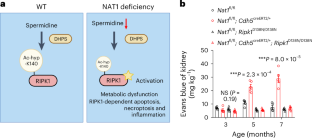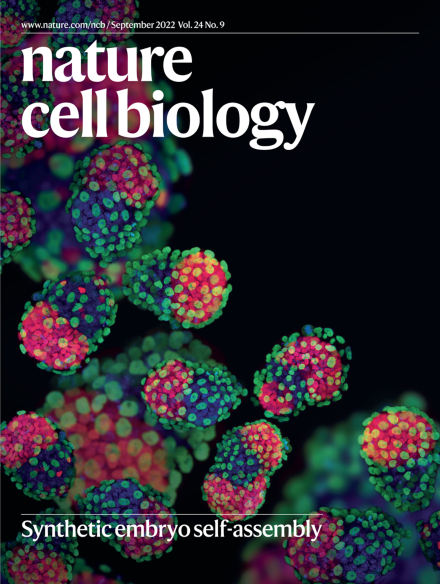Spermidine limits diabetes by modulating RIPK1-mediated cell death and inflammation
IF 17.3
1区 生物学
Q1 CELL BIOLOGY
引用次数: 0
Abstract
We establish a mouse model of progressive diabetes induced by conditional NAT1 deficiency in vascular endothelial cells. NAT1 deficiency promotes the activation of RIPK1 owing to a type of post-translational modification mediated by spermidine and deoxyhyupisin synthase termed acetyl-hypusination. Our results suggest that inhibition of RIPK1 could be used to treat type 2 diabetes and vascular inflammation.


精胺通过调节 RIPK1 介导的细胞死亡和炎症限制糖尿病的发生
我们在血管内皮细胞中建立了一个由条件性 NAT1 缺乏诱导的进行性糖尿病小鼠模型。NAT1 缺乏会促进 RIPK1 的活化,这是一种由亚精胺和脱氧羽扇豆素合成酶介导的翻译后修饰(称为乙酰化)所致。我们的研究结果表明,抑制 RIPK1 可用于治疗 2 型糖尿病和血管炎症。
本文章由计算机程序翻译,如有差异,请以英文原文为准。
求助全文
约1分钟内获得全文
求助全文
来源期刊

Nature Cell Biology
生物-细胞生物学
CiteScore
28.40
自引率
0.90%
发文量
219
审稿时长
3 months
期刊介绍:
Nature Cell Biology, a prestigious journal, upholds a commitment to publishing papers of the highest quality across all areas of cell biology, with a particular focus on elucidating mechanisms underlying fundamental cell biological processes. The journal's broad scope encompasses various areas of interest, including but not limited to:
-Autophagy
-Cancer biology
-Cell adhesion and migration
-Cell cycle and growth
-Cell death
-Chromatin and epigenetics
-Cytoskeletal dynamics
-Developmental biology
-DNA replication and repair
-Mechanisms of human disease
-Mechanobiology
-Membrane traffic and dynamics
-Metabolism
-Nuclear organization and dynamics
-Organelle biology
-Proteolysis and quality control
-RNA biology
-Signal transduction
-Stem cell biology
 求助内容:
求助内容: 应助结果提醒方式:
应助结果提醒方式:


